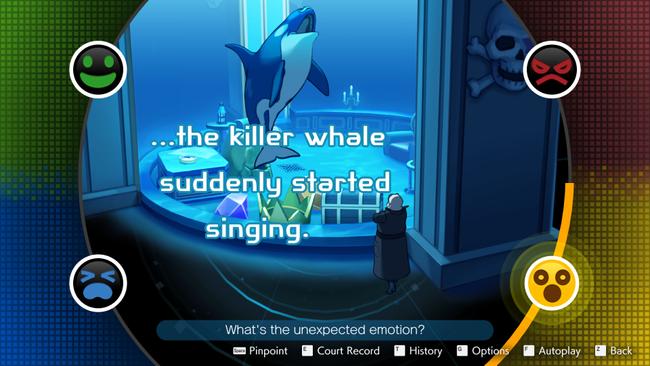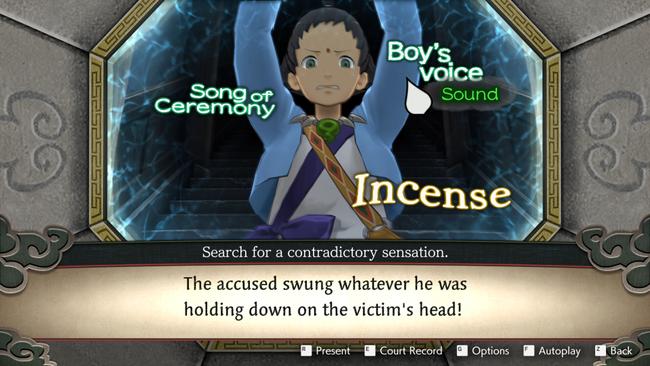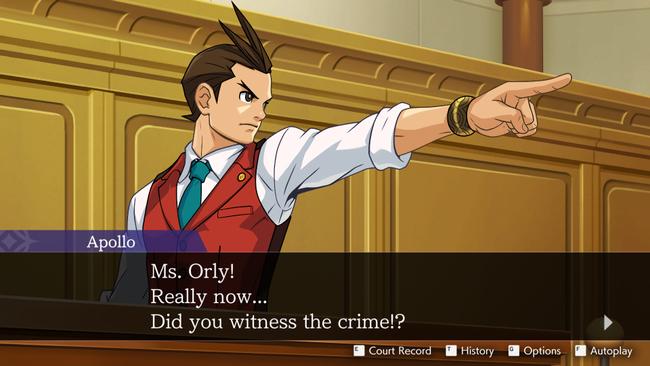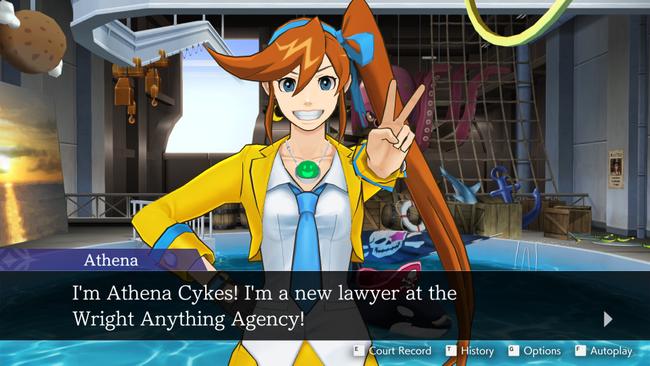
Apollo Justice: Ace Attorney Trilogy Review
If you’ve ever wondered how to get as much Ace Attorney as possible into your system, now is the time to feast. With Capcom's release of the Apollo Justice: Ace Attorney Trilogy on PC and current consoles, players now have hundreds of hours of Ace Attorney madness to read through at their leisure. The compilation contains the latter three main-series Ace Attorney games: 2007's Apollo Justice: Ace Attorney, 2013's Phoenix Wright: Ace Attorney - Dual Destinies, and 2016's Phoenix Wright: Ace Attorney - Spirit of Justice. Though these games have been available on mobile for some time, Capcom's given the new console and PC ports an extra dose of polish, along with UI updates and a few extras.
Perhaps the first thing to point out is that the title of the compilation feels like a bit of a stretch. Though it's called Apollo Justice: Ace Attorney Trilogy, perhaps a more accurate (if less succinct) descriptor would be “Three Games With Apollo Justice in Them.” Indeed, the “trilogy” only has one game with Apollo Justice even in the title. The other two are prominently headed by "Phoenix Wright: Ace Attorney," so there’s really no doubting who’s the headliner here.

At the very least, Apollo Justice: Ace Attorney makes an effective gesture at a fresh start. Set years after the conclusion of the first three games, Apollo Justice stars the new, titular newbie defense attorney, on the quest to make a name for himself and in doing so, solve the overarching mystery of just what happened to the now-legendary Phoenix Wright himself. Many of Apollo's cases involve the disbarred, disheveled-looking Phoenix in an advisory role, with an unexpected sci-fi twist serving as a late-game framing device around which the larger story of what happened in the intervening years between Phoenix's fall and Apollo's rise is told.
As it was originally a DS-based game, Apollo Justice Ace Attorney feels like the most traditional title in the collection. Apollo gets a new gimmick that allows him to "Perceive" the "tells" of a witness when they're unsure or lying to him, and the rookie detective Ema Skye adds in a number of minor clue-hunting mechanics based on forensic investigation. It's in these segments where you realize that the game was originally played over two screens, as on the PC and with a gamepad, many of the interactions are replaced by simple button presses that leave them feeling a bit vestigial. It's a small loss, to be sure, but does contribute to the aura of Apollo Justice being a game from an earlier era.

Perhaps that's appropriate, because the intent for Apollo to take up the torch as the new face of the series also seems like a desire from a different time. Playing Dual Destinies and Spirit of Justice right after Apollo Justice makes it all the more apparent how firmly he was pushed behind Phoenix in the lineup as the years went on. Bits and pieces of backstory for Apollo that were hinted at in Apollo Justice were dropped for other subplots in Dual Destinies...that were then pivoted away from in Spirit of Justice.
Despite the obvious mistreatment, Apollo does end up shining more as a member of the supporting cast than the headliner. His initial characterization in Apollo Justice as a rookie lawyer caught up in his own nervous inexperience was far too close to Phoenix's initial arc to make him feel genuinely distinct. And despite the inconsistencies in Dual Destinies and Spirit of Justice, he does felt like more of his own person, with his own role in the story, even if that role is a smaller one than first imagined.

"Smaller than first imagined" might also be an appropriate descriptor for this trilogy's position in the greater canon of Ace Attorney titles. I don't mean this literally - the games are substantial and a single playthrough of all three will easily take up dozens of hours. Instead, they do feel noticeably less composed than either the original trilogy, or 2021's The Great Ace Attorney Chronicles duology. That's partly because they're not a "real" trilogy in the narrative sense of the word, but also because they can't help but come across like company-mandated attempts to extend a popualr and beloved franchise rather than genuinely integral, fully thought-through components of a greater saga.
Mind you, that doesn't mean they're not entertaining to play. The writing and localization work for Ace Attorney games is some of the best you'll find in the medium, and every case remains entertaining. The gimmicks also multiply in Dual Destinies and Spirit of Justice, with the latter two games calling on all three defenders' "signature" mechanics: Phoenix's Psyche-Locks, Apollo's nervous tick-detecting Perception, and Athena's technology-aided Mood Matrix therapy. All these gimmicks roll out in service of finding new and absurd ways to "break" each witness' testimony over the defenders' knees.
The Apollo Justice: Ace Attorney Trilogy's visual overhaul also puts its graphics at their best. Apollo Justice's 2D sprite work is as crisp as it ever was (though its rudimentary 3D animations are a little long in the tooth), and the higher resolution of modern platforms makes the 3D work in Dual Destinies and Spirit of Justice stand out much better than on the 3DS or a smartphone's dinky screen. Convenience improvements are also visible in all three games, like automatic text scrolling and a text log. For the latter two games, an interaction-free "story mode" even allows you to just read them like a visual novel, which can be appropriate given how railroaded some of the cases can feel (particularly in Dual Destinies). All in all, this trilogy is much less of a chore to experience than even when it was first released.
There's also a flashy Museum section that contains a music player, concept and key art galleries, and a cutscene theater. There's even a little "animation theater" mode that allows you to assemble custom sequences of the characters' Trial animations. Though inessential, what's here is far more than the comparative bare-bones nature of the original Ace Attorney Trilogy release.

And there's the rub. Though the new games are in many ways lesser than the original trilogy (only Spirit of Justice feels like it's not constantly chasing the coattails of the first trilogy), they're still well worth playing. Further, the high quality of the ports and their improved convenience make them the definitive editions of those games. If anything, I retroactively ended up wishing some of these changes had been added to the original trilogy ports as well, the better to make for a genuinely smooth beginning-to-end progression through all of the mainline Ace Attorney titles.
Apollo Justice: Ace Attorney Trilogy launches on January 25 on PC, PS4, Xbox One, and Nintendo Switch.